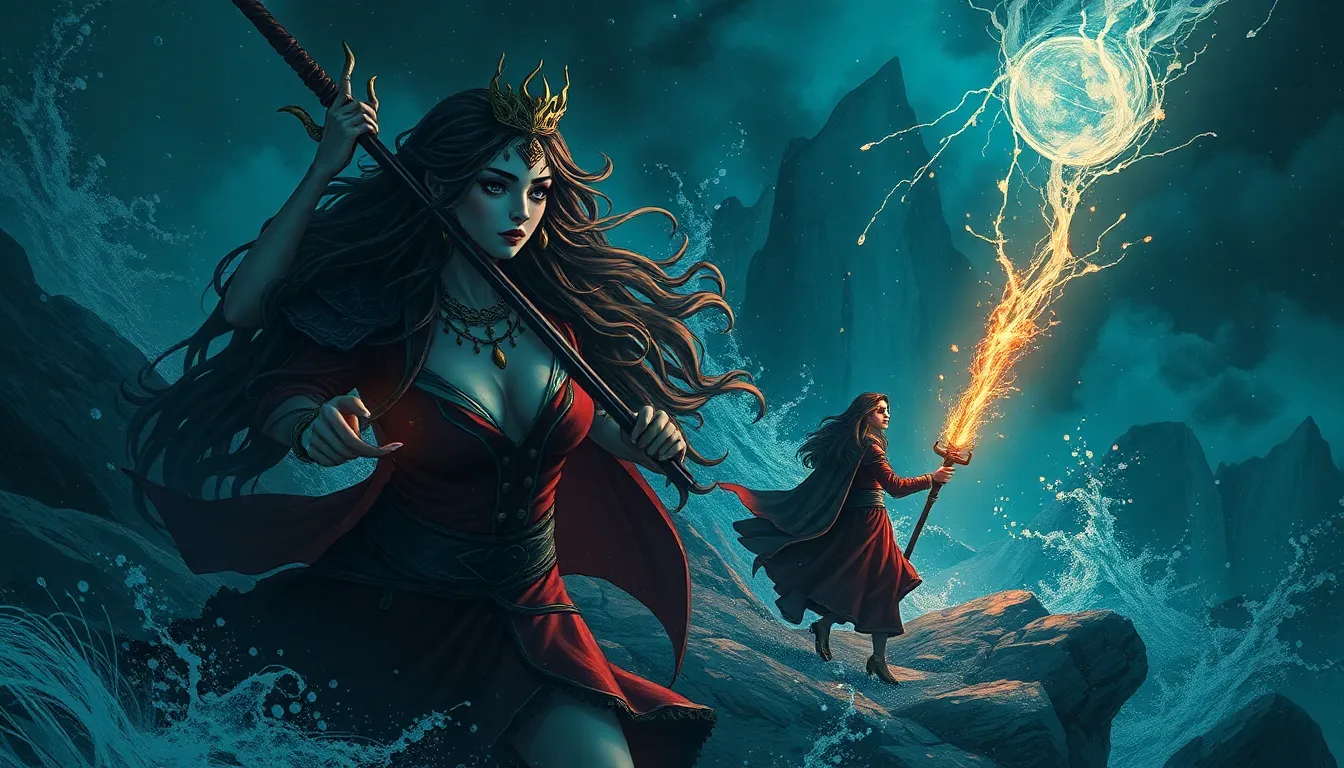The Journey of the Heroine: Legendary Female Adventures
I. Introduction to the Heroine’s Journey
The heroine’s journey is a narrative framework that highlights the unique experiences of female protagonists as they embark on transformative adventures. Unlike the traditional hero’s journey, which often focuses on external accomplishments, the heroine’s journey emphasizes internal growth, emotional depth, and the power of relationships.
Throughout history, female adventurers have played significant roles in both myth and reality, challenging societal norms and breaking barriers. Their stories resonate across cultures, showcasing resilience and the quest for identity and purpose.
This article will explore the archetypes of heroines in literature and mythology, historical figures who have embodied these roles, legendary characters from folklore, modern representations, and the psychological and cultural implications of their journeys.
II. Archetypes of Heroine in Literature and Mythology
Within literature and mythology, heroines can be categorized into various archetypes, each representing different aspects of the female experience.
A. The Warrior Maiden: Strength and Courage
The warrior maiden archetype embodies physical prowess and bravery. These heroines often defy societal expectations and take on traditionally masculine roles, fighting for their beliefs or loved ones. Examples include characters like Mulan, who disguises herself as a man to take her father’s place in battle.
B. The Wise Woman: Knowledge and Guidance
The wise woman archetype represents intuition, wisdom, and the ability to guide others. Often depicted as mentors or mothers, these heroines provide valuable advice and support. Figures like Athena from Greek mythology exemplify this archetype, offering guidance in times of need.
C. The Reluctant Heroine: Overcoming Inner Struggles
This archetype focuses on heroines who initially resist their call to adventure, facing internal conflicts and fears. Their journey often involves self-discovery and acceptance. Characters like Elizabeth Bennet from “Pride and Prejudice” illustrate this journey, as they navigate societal pressures and personal growth.
III. Historical Figures as Heroines
Many historical figures have become icons of female strength and bravery, inspiring generations.
A. Joan of Arc: The Martyr and Military Leader
Joan of Arc is celebrated for her unwavering faith and military leadership during the Hundred Years’ War. Her courage in the face of persecution and her ultimate martyrdom have solidified her status as a heroine.
B. Cleopatra: The Politician and Strategist
Cleopatra VII, the last active ruler of the Ptolemaic Kingdom of Egypt, is known for her intelligence, political acumen, and strategic alliances with powerful Roman leaders. She is often portrayed as a multifaceted heroine navigating a male-dominated world.
C. Harriet Tubman: The Conductor of Freedom
Harriet Tubman exemplifies the spirit of resilience and bravery. As a conductor on the Underground Railroad, she risked her life to lead enslaved people to freedom, becoming a symbol of courage and determination in the fight for justice.
IV. Legendary Heroines in Folklore and Fairy Tales
Folklore and fairy tales often feature heroines who challenge the status quo and inspire change.
A. Mulan: The Warrior Who Defied Gender Norms
Mulan’s story is one of bravery and defiance. Disguising herself as a man to join the army, she challenges gender norms and ultimately saves her country, demonstrating that heroism knows no gender.
B. Scheherazade: The Storyteller Who Changed Fate
Scheherazade, the clever storyteller from “One Thousand and One Nights,” uses her intelligence and creativity to survive and transform her circumstances. Her tales not only captivate but also bring about change in the heart of her captor.
C. Cinderella: From Oppression to Empowerment
The story of Cinderella represents the journey from oppression to empowerment. Through her resilience and kindness, she ultimately overcomes her hardships and finds love, embodying the belief that goodness will prevail.
V. Modern Representations of the Heroine
In recent years, the representation of heroines in literature and film has evolved, reflecting contemporary issues and attitudes.
A. Female Protagonists in Literature and Film
- Katniss Everdeen from “The Hunger Games” demonstrates survival and defiance against oppressive systems.
- Daenerys Targaryen from “Game of Thrones” embodies the struggle for power and justice.
- Hermione Granger from “Harry Potter” showcases intelligence and bravery in a magical world.
B. Impact of Feminism on Heroine Narratives
The feminist movement has significantly influenced the portrayal of heroines, pushing for more complex, relatable, and diverse female characters. These narratives often highlight themes of equality, agency, and empowerment.
C. Examples: Katniss Everdeen, Daenerys Targaryen, and More
Modern heroines are often depicted as flawed yet relatable, showcasing a range of emotions and experiences that resonate with contemporary audiences.
VI. The Psychological Aspects of the Heroine’s Journey
The journey of the heroine is not just physical; it is also deeply psychological.
A. Identity and Self-Discovery
Many heroines embark on a journey of self-discovery, navigating personal identity in a world that often imposes limitations. This quest can lead to profound transformations and realizations.
B. The Role of Relationships and Community
Relationships play a crucial role in a heroine’s journey, providing support, conflict, and opportunities for growth. Community connections often propel heroines forward on their paths.
C. Challenges and Growth: From Vulnerability to Empowerment
Heroines frequently face challenges that test their strength and resolve. These experiences of vulnerability are essential for their growth, leading to empowerment and a deeper understanding of their own capabilities.
VII. Cultural Representations of Heroines Across the Globe
Heroines are represented in diverse cultures, each reflecting unique values and experiences.
A. African Heroines: Strength in Adversity
African folklore and history feature heroines who display remarkable strength in the face of adversity, often leading their communities through struggles.
B. Asian Heroines: Tradition and Innovation
Asian cultures celebrate heroines who balance tradition with innovation, navigating societal expectations while forging their own paths.
C. Indigenous Heroines: Wisdom and Resilience
Indigenous narratives often highlight heroines who embody wisdom and resilience, serving as guardians of their cultures and traditions.
VIII. The Impact of Social Media on the Heroine’s Narrative
Social media has transformed how stories of heroines are shared and celebrated.
A. Platforms for Sharing Stories of Female Adventurers
Social media platforms allow women to share their stories and adventures, fostering a sense of community and empowerment among female audiences.
B. The Rise of Influencers as Modern Heroines
Influencers often serve as modern heroines, using their platforms to advocate for causes and inspire change, showcasing the power of female voices in contemporary society.
C. Social Movements and Their Role in Empowering Women
Movements like #MeToo and #TimesUp have amplified female narratives, encouraging women to share their experiences and fight for equality and justice.
IX. The Future of the Heroine’s Journey
The narrative of the heroine continues to evolve, reflecting changing societal values and expectations.
A. Evolving Archetypes: What’s Next for Heroines?
Future representations of heroines are likely to explore new archetypes that embrace complexity, diversity, and intersectionality, challenging traditional norms.
B. Representation in Media and Literature: Progress and Challenges
While progress has been made in representing heroines, challenges remain in ensuring that all voices are heard and represented authentically.
C. The Importance of Diverse Narratives in Shaping Culture
Diverse narratives are crucial for shaping cultural understanding and appreciation, ensuring that all women can see themselves as heroines in their own stories.



